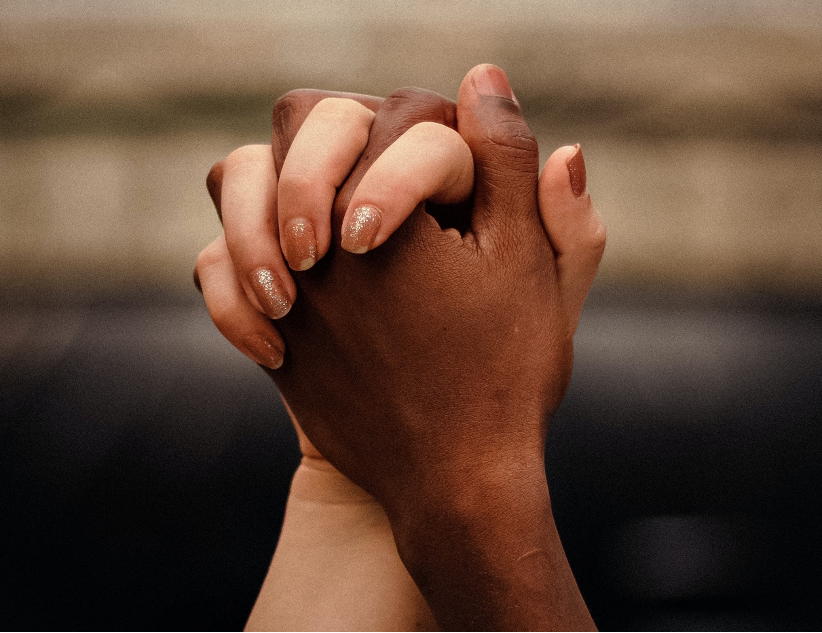Emphasis on respective love languages helps strengthen couple’s relationship
Rarely ever wearing makeup, Camryn Kocher will spend hours getting ready to go out with her boyfriend, Joe Cook. Receiving compliments are important to Kocher and she said he never fails to tell her she looks nice, even when not wearing makeup. She and her boyfriend work to practice each other’s love languages in order to strengthen their relationship.
“When you love someone, you should remind them every day,” Kocher, junior public relations major, said. “Joe is very strong with giving words of affirmation, and that’s one thing I love about him.”
Love languages are used to describe how people like to be loved and show how they love others. The five love languages are: words of affirmation, acts of services, gifts, quality time and physical touch.
With words of affirmation being Kocher’s love language, Cook makes sure he tells her a compliment at least every day.
Author Gary Chapman published a concise book about the five love languages, which outline ways romantic partners express and experience love. These languages are used at many counseling practices.
“You have to figure out what your partner values and what you value as well,” Allyssa Dziurlaj, licensed professional clinical counselor, said. “Whichever resonates most with you is the most important. If you are a person who struggles with confidence, you need someone who can give you words of affirmation.”
Acts of services and physical touch are Cook’s love languages.
“I think acts of service can be a lot of different things,” Cook said. “They could be back rubbing, holding the door open for your person and so much more.”
On the other hand, Kocher said one of her main love languages is quality time. She loves to be around her boyfriend and spend as much time with him as she can.
“Even though my love language is acts of service, I do not like when she does acts of services for me,” Cook said. “I feel like I should be doing them since I am the man in the relationship.”
For Kocher, this becomes a problem because although her love language is quality time, she loves to do little acts of services for her boyfriend of two years.
“I used to have a very hard time with Joe paying for me,” Kocher said. “Now, I don’t put up as much of a fight as I used to — I let him pay when he wants.”
Growing up independently, Kocher had to keep track of her spending and what she was doing with her money. That’s why when she and Cook would go on a date, she did not want him paying. Being in a relationship with Cook taught her that it is OK for others to spend money on you.
“She doesn’t like when I pay for her,” Cook said. “She got better at it as we moved forward, but it got on my nerves. I just wanted to take her out sometimes and have it be on me.”
The love languages of men and women can differ, which sometimes causes communication issues.
“I recommend talking about love languages with your partner all the time actually,” Dziurlaj said, “because clients talk about issues in communication, and I suggest that they take the quiz on love languages to see what them and their partner’s love languages are.”
Both Cook and Kocher have never taken any love language quiz before, but both agreed having the same love language can make a relationship easier.
“I think the basic part of any relationship is accepting each other’s differences, and sharing those experiences will make the relationship even better,” Kocher said.
Much like his girlfriend, Cook thinks having the same love language can make a relationship easier.
“For us, I think we fill out each other’s gaps,” Cook said. “We even each other out so it makes it easy, but it can get hard sometimes.”
Also agreeing with the couple, Dziurlaj thinks it’s better to have the same love language as your significant other because people love their partners in the way they want to receive love.
If couples have different love languages, Dziurlaj said that is OK too and no single love language is more valuable than the others.
Reading the book on love languages in grad school, Dziurlaj uses this practice when she is with clients.
“I think it’s [love languages] very important,” Dziurlaj said. “I don’t think it’s necessarily important to know in a specific way like the book, but generally knowing how your partner feels love and their values are very important.”
Not everyone is an expert in love languages, but everyone can definitely educate themselves on it.
“Communication is key to any healthy relationship,” Dziurlaj said. “Therapy would be great for a couple that is having issues communicating and it can help to have an unbiased person sit in on the conversation as the guide or mediator.”
Cassondra Siaus covers relationships. Contact her at [email protected].



